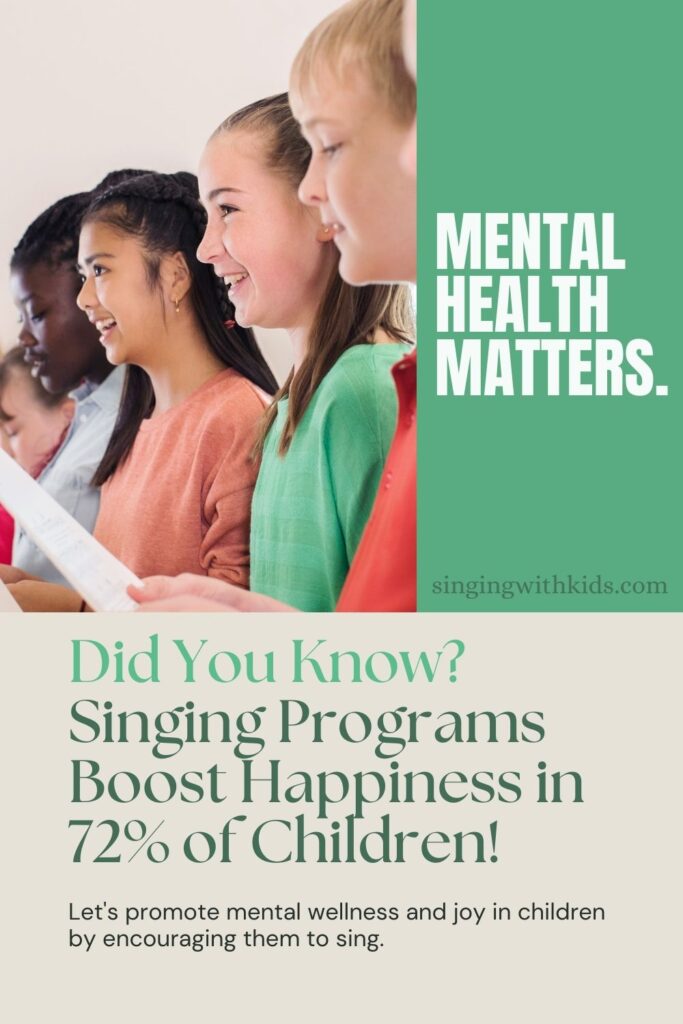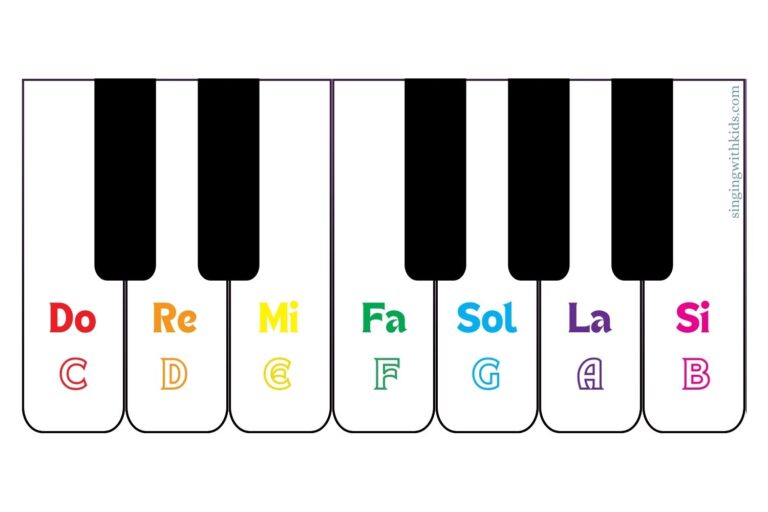The Surprising Benefits of Singing for Children’s Development and Well-Being
The Surprising Benefits of Singing for Children’s Development and Well-Being
Hello, dear readers! Have you ever found yourself humming a tune while working or caught your child singing their heart out during playtime? Music, with its universal language of melody and rhythm, touches us in ways words alone cannot. But have you ever considered the deeper impact of singing, especially on children?
Today, we delve into a topic as melodious as it is meaningful: the surprising and extensive benefits of singing for our little ones. This isn’t just about creating future stars for the stage but nurturing their emotional, mental, and physical well-being. For parents and educators, understanding these benefits opens a new avenue to enrich children’s lives profoundly.
Table of Contents
The Magic of Melody: Emotional and Mental Health Benefits

Singing benefits, emotional health, stress coping, mental well-being – these aren’t just keywords for our discussion; they are pillars that support the incredible structure of benefits singing offers to children.
Singing, at its core, is a natural and powerful form of expression. It allows children to articulate their feelings, transforming abstract emotions into something tangible and shared. This act of creation isn’t just artistic; it’s a vital emotional release. Imagine the relief and joy in a child’s face as they channel their energy into a song, turning frustration or sadness into melodies that float away.
But it’s not just about the cathartic experience. Research consistently highlights how singing is linked to improved mood and reduced anxiety among children. One study, highlighted by the Greater Good Science Center at UC Berkeley, discusses how singing to babies can significantly calm them, more so than speaking, suggesting an innate connection to melody that soothes the young mind. The Sing Up Foundation supports this, presenting evidence on singing’s role in promoting emotional well-being and coping with stress.
Moreover, engaging in singing has been shown to foster a positive mindset, helping children manage stress more effectively. This isn’t about avoiding life’s challenges but equipping our young ones with a joyful tool for resilience. Singing encourages what psychologists call ’emotion-focused coping,’ a strategy that helps individuals to become less reactive to stress and more capable of processing their feelings in a healthy way.
Singing isn’t just an enjoyable pastime; it’s a conduit for emotional and mental growth. As parents and educators, introducing children to the joy of singing offers them a lifelong companion for emotional expression and mental well-being. It’s a gift that goes beyond the notes and lyrics, touching the heart and nourishing the soul.
The Surprising Benefits of Singing for Children’s Development and Well-Being
In our journey through the musical world of children’s development, we now explore the incredible physical and cognitive benefits of singing. As we’ve seen, singing enriches children’s emotional and mental health, but its magic doesn’t stop there. Let’s dive into how it also plays a vital role in physical health and developmental growth.
The Symphony of the Body: Physiological and Physical Health Benefits
Immune system boost, cardiovascular health, lung capacity, physical health—these terms might seem more at home in a doctor’s office than a music class, but they’re intrinsically linked to singing. The act of singing isn’t just an artistic expression; it’s a full-body workout that engages and enhances various bodily functions.
The science behind singing reveals its power to strengthen the immune system. Studies have found that singing increases levels of Immunoglobulin A, an antibody that plays a crucial role in the mucosal immunity of our respiratory tract . This boost to the immune system is a testament to how singing can be a protective shield for our health.
Furthermore, singing has been shown to improve lung capacity and enhance cardiovascular health. When we sing, we take deeper breaths and control our breathing, which increases oxygen flow and exercises our lung and heart muscles . This aerobic activity not only strengthens our respiratory and circulatory systems but also contributes to overall physical wellbeing, including pain relief. Imagine children engaging in this joyful form of exercise, enhancing their health one note at a time.
Harmonizing Development: Language, Social Skills, and Cognitive Growth

Moving from the physical to the developmental, singing is a powerful tool for early childhood development, language skills, social inclusion, and cognitive benefits. It’s fascinating how a simple song can impact a child’s growth in so many profound ways.
Language development and emotional intelligence are significantly nurtured through singing. Repetitive melodies and lyrics introduce children to new vocabulary and sentence structures, helping them understand and use language more effectively. Additionally, the emotional content of songs allows children to explore and express their own feelings, developing empathy and emotional awareness .
Singing also plays a critical role in enhancing social skills and fostering a sense of belonging. Group singing activities require cooperation and teamwork, promoting social inclusion and building friendships. Children learn to listen to others, match their rhythms and melodies, and work together to create harmony, both musically and socially .
Cognitive skills are another area where singing has a positive impact. Engaging with music and lyrics can improve memory, attention, and even academic performance. Research has shown that musical activities support cognitive development, helping children excel in areas beyond music, from numeracy to literacy .
The benefits of singing cover a wide spectrum, from physical health to cognitive and social development. As we weave these melodies into the fabric of children’s lives, we offer them a wealth of opportunities for growth and happiness.
As parents and educators, encouraging children to sing and participate in musical activities can be one of the most joyful and beneficial gifts we provide. Whether at home, in school, or in community choirs, every note sung is a step toward a healthier, more connected, and intellectually enriched life.
Let’s continue this conversation. How have you incorporated singing into your child’s life? What changes have you observed? Share your experiences and tips in the comments below, and let’s spread the joy of singing far and wide.

Singing is not just an activity; it’s a journey towards a well-rounded development. By incorporating singing into our children’s lives, we’re not just teaching them to harmonize with melodies but to live harmoniously with themselves and the world around them.
The Harmonious Bridge: Singing and Children with Special Educational Needs
In the symphony of children’s development, singing plays a pivotal role, not just for the typical child but also as a therapeutic and educational tool for children with special educational needs (SEN), including those with ADHD, autism, and twice-exceptional (2e) conditions. Music, with its structured yet flexible nature, can be a soothing balm and a means of communication for children who experience the world differently.
Singing and SEN: A Symphony of Support
For children with ADHD, the rhythmic patterns and repetition in songs can aid in focusing and maintaining attention. Singing activities that involve call and response can encourage active participation and help in improving concentration levels. Music’s inherent structure provides a comforting framework that can guide children with ADHD through tasks and routines with increased calm and focus.
In the context of autism, singing and musical activities offer a unique way to engage and communicate. Many children with autism spectrum disorder (ASD) have a natural affinity for music. Singing can be a non-verbal channel for expressing emotions and thoughts, often making it easier for these children to convey what they might not be able to put into words. Additionally, music therapy sessions designed around singing have shown positive effects in enhancing social skills, reducing anxiety, and improving verbal communication.
Twice-exceptional children, who possess high cognitive abilities alongside special needs, also benefit from singing and music. These activities can cater to their advanced intellectual capacities while offering the support needed for their challenges. Singing can be a form of both intellectual stimulation and emotional expression, providing a balanced outlet that nurtures their whole being.
Integrating Singing into Supportive Practices
To effectively integrate singing and music into the lives and education of children with SEN, parents and educators can:
- Use songs as a tool for routine and structure: Singing songs that relate to different parts of the day or tasks can help in creating a predictable environment, especially beneficial for children with autism and ADHD.
- Encourage expressive singing: Allowing children to express themselves through song can give them a voice when words may fail, fostering self-esteem and emotional regulation.
- Explore therapeutic music programs: Many communities offer music therapy specifically designed for children with SEN, providing tailored interventions that can support individual needs.
For children with SEN, singing isn’t just an activity; it’s a pathway to enhancing their abilities, coping mechanisms, and social interactions. It’s a testament to the inclusive power of music, offering a space where all children can shine, learn, and grow.
Incorporating singing and music into the lives of children with SEN can be deeply rewarding. It encourages a holistic approach to their development, acknowledging their unique needs while celebrating their individuality and potential.
The Surprising Benefits of Singing for Children’s Development and Well-Being
As we’ve explored the myriad ways singing impacts children’s emotional and mental well-being, and enhances their physical and cognitive development, it’s time to harmonize our understanding with the social and confidence-building aspects of music. Singing is not just a solo performance; it’s a chorus of connections, growth, and shared joy.
A Duet with Well-being: Singing for Social Bonds and Confidence
Parent-child bonding, social bonds, confidence, group singing benefits—these aspects of singing illuminate its power to connect and uplift.
Singing together creates a unique and intimate bond between parents and their children. This shared activity fosters a sense of trust, love, and communication, enriching the parent-child relationship. Studies have shown that musical activities like singing can significantly improve parent-child interactions, making them more positive and engaging . The melody and rhythm invite a mutual exchange of feelings and thoughts, laying a foundation for a strong emotional bond.
Group singing or choir participation extends these benefits beyond the family, boosting children’s confidence and enhancing their social interaction. Being part of a singing group teaches children about teamwork, respect, and empathy. It provides a platform for them to express themselves confidently among peers, receive constructive feedback, and experience the joy of collective achievement. The confidence gained from performing and the social skills developed in this setting are invaluable assets for children’s growth.

Practical Tips for Integrating Singing into Daily Life
Integrating singing into daily life is easier than you might think, and it can be a source of endless fun and learning for your family. Here are some practical tips:
- Singing activities: Make singing a part of your daily routines. Sing lullabies at bedtime, cheerful songs during playtime, and even educational songs that teach about numbers, letters, or nature.
- Educational singing: Explore songs with educational themes. There are numerous resources online where you can find songs that teach everything from the alphabet to science concepts, making learning both fun and musical.
- Family singing time: Dedicate time each week for family singing. Choose songs everyone enjoys, learn new ones together, and encourage each other to perform solo pieces or duets.
- Community or school choirs: Encourage your child to join a choir. Participating in a choir can be a fantastic opportunity for them to develop their singing skills, make new friends, and be a part of meaningful performances.

Closing Notes
Through our exploration of the benefits of singing, it’s clear that music is a powerful tool in children’s development. From nurturing their emotional and mental health to enhancing physical well-being, supporting cognitive growth, and fostering social bonds and confidence, singing opens up a world of opportunities for children to grow, connect, and thrive.
We encourage parents to explore the world of music and singing with their children. The joy and benefits it brings can truly enrich your lives and create lasting memories. Share your experiences, favorite songs, or tips for integrating music into your family’s life in the comments below. Let’s continue to sing, learn, and grow together.
For more insights into the benefits of singing and music in early childhood, visit the following resources:
- Sing Up Foundation
- Greater Good Science Center at UC Berkeley
- CELA
- BurbaNKids Blog
- Empowered Parents
- Good Days with Kids
- Chorus America
- BBC
Engaging with music through singing not only enriches children’s lives in the present but plants the seeds for a healthy, happy, and harmonious future. Let’s embrace the power of song and witness the beautiful growth it brings to our children’s lives.
Let’s keep the conversation going. Have you noticed changes in your child’s mood or behavior through singing? Share your stories in the comments below!







